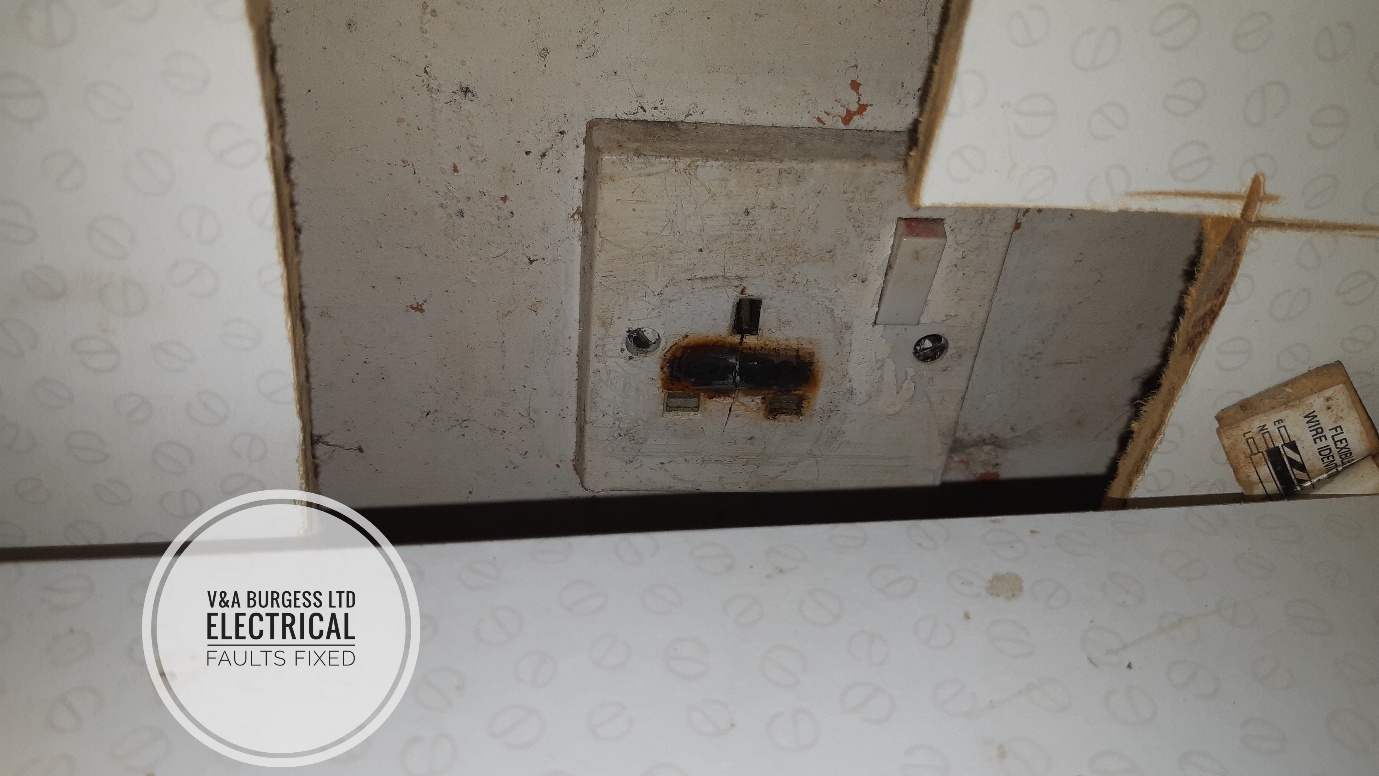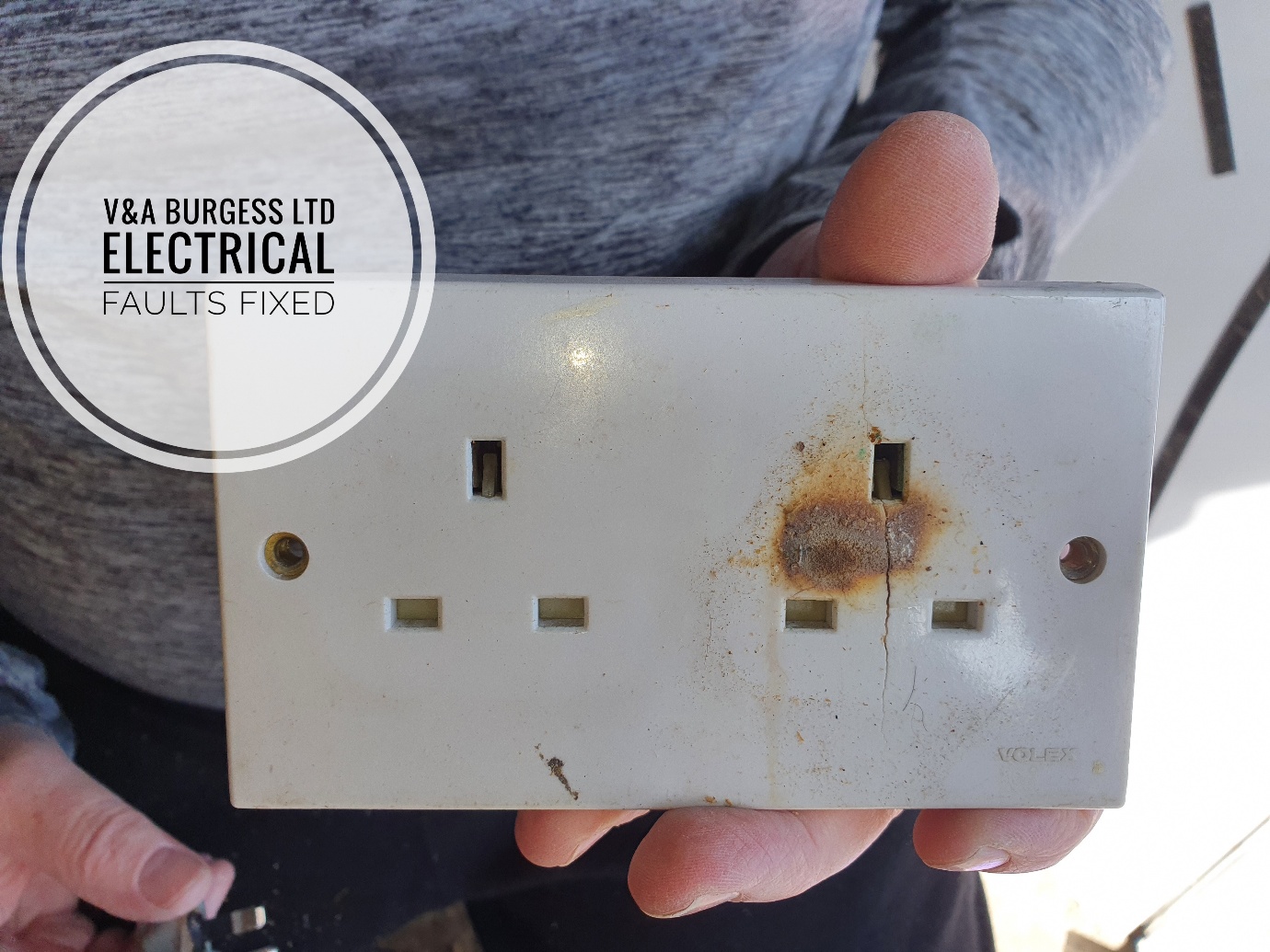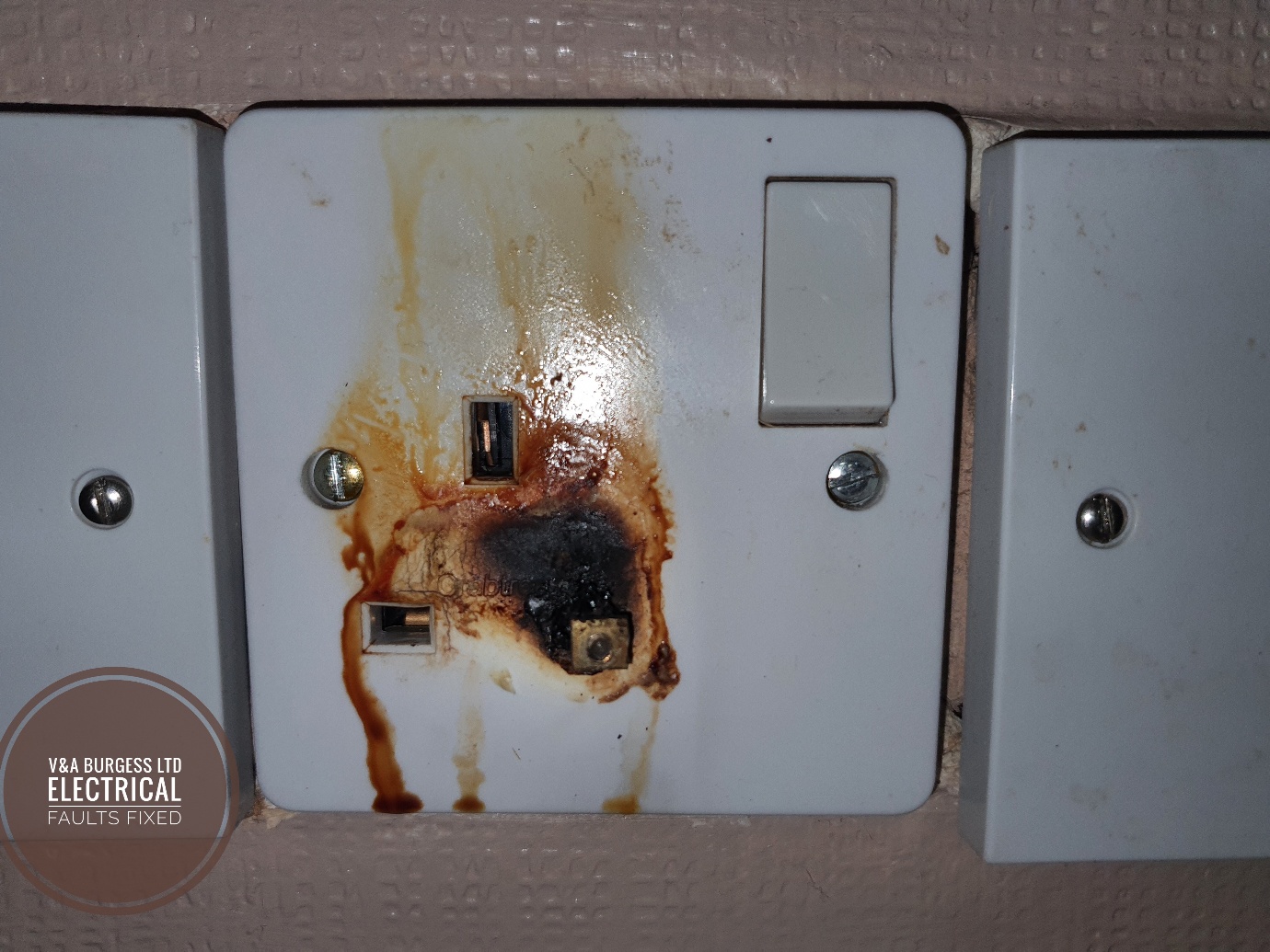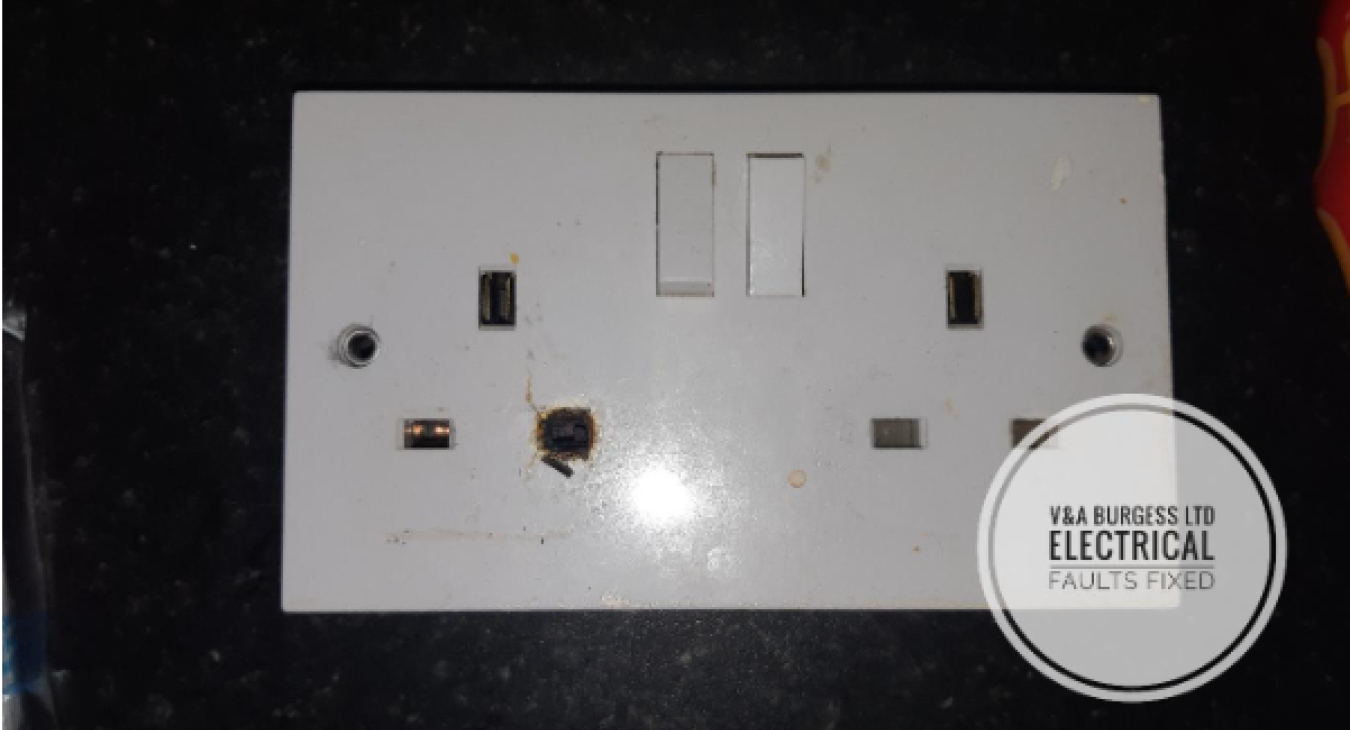12 Signs your electrical outlets need replacing at home
Table of Contents
As a professional electrician and electrical lecturer, I have a great deal of experience with electrical systems and finding electrical faults. Issues with electrical outlets are more common in older homes as old wiring and outdated outlets tend to go hand in hand with older properties. If you are experiencing problems with your socket outlets then this could be an indication that they require replacing.
Let's look at the signs and symptoms of failing electrical outlets and when they need to be swapped out for new replacements.
Back to top1) The Signs and Symptoms
- Burning Smell - If you notice a burning smell around an electrical outlet then this is a sure sign that the outlet requires replacing without delay. There could be electrical arcing behind the outlet causing scorch marks, high temperatures and potential fire hazards in your home.
- Faulty outlet - Even if one outlet is faulty, this could indicate that all the home's outlets potentially have loose connections. A loose connection is a serious problem for the safety of your home as electrical arcs will develop increasing the risk of electrical fires. Loose connections occur over time and affect all wiring.
- Physical damage - If one or more of your electrical outlets has signs of mechanical damage such as cracking, chunks missing from sockets or perhaps the socket is loose on the wall then these outlets should be replaced without delay. It doesn't take much to cause a damaged receptacle to become further damaged leading to risk of electrical shocks.
- Ground Fault Circuit Interrupter issues - If your GFCI (or RCD in EU and UK) device is tripping then this is indicating that there is a ground or earth fault present. When these types of fault occur in electrical wiring, a certified electrician should be called to investigate the cause. These devices are installed to prevent electric shock so GFCI and RCD issues should be taken seriously.
- Discoloured Outlets - Where electrical outlets have changed from their original white or beige color and are now yellowed or discolored, this can indicate that they are very old or have overheated. Overheating outlets can mean an overloaded circuit, faulty wiring or faulty socket outlet. Regardless, none of these are good so consider replacing the affected outlets.
- Signs of excessive heat - If an outlet appears to be burnt or has soot around it then this indicates that there are problems. It could be that a short circuit has caused sparking and burning issues or there could be other electrical problems at play. Whatever the issues might be, immediate attention is recommended to prevent any further problems or electrical hazards from developing.

(Photo: Faulty Plug Top caused this to overheat)
- Outdated Outlets - If you have outdated electrical outlets in your home then new outlets are strongly recommended. The lifespan of an electrical outlet will depend upon several factors including wear and tear, age, power demand, connection tightness and original manufacture quality. It’s best to consult with a professional electrician who will advise you regarding socket replacements.
- Circuit Breaker Pops - If you find that the circuit breaker for your electrical sockets circuit is blowing then there could be a wiring fault on the circuit or the plug sockets could be the cause. Old plug sockets can fail, become damaged or wear out causing GFCI, RCD and Circuit Breaker devices to trip along with other protective devices.
- Sockets don't hold plugs - If your socket outlets are no longer holding plugs in securely then there could be excessive wear on the internal mechanism resulting in loose connections between the plug and the socket outlet. This can lead to fires, electric shock risk and equipment damage. Loose plugs are not good at passing electricity between outlet and appliance so get them replaced.
- Sounds coming from the sockets - If you can hear a crackling or popping sound coming from your socket outlets then this is a clear sign that the electric outlets are not working correctly. The power supply to sockets and equipment should be virtually silent, strange noises mean electrical supply problems so have them checked out.
- Flickering Lights - Where table lamps and floor lamps are connected to your sockets, flickering lights can occur if there are issues with a power outlet. This could be as a result of loose electrical connections, work outlets or problems at the electrical panel so ask a qualified electrician to investigate for you.

(Photo: Worn Socket and overheated plug)
- Appliances don't work properly - If you notice that appliances are not running at the correct speed or don't perform as expected then there could be an issue with a specific outlet or general lack of power on the circuit. When insufficient electrical current can flow, appliances will not perform as well as they should. The most common reason for this is older outlets and poor connections at the electrical panel, fuse box or consumer unit that affect the entire circuit.
Back to top
2) How to ensure Socket Outlets Last Longer
In order to ensure that your electrical outlets last as long as they can, there are some sensible steps that you can take to ensure they don't wear out too quickly.
- Have socket outlets installed by a licensed electrician - Ensure that work is carried out by a professional to comply with the National Electrical Code (NEC) or BS7671 Wiring Regulations if in the UK. A professional electrician will not simply screw new outlets to the wall, they will carry out electrical testing during and following the work to ensure that the electrical wires are sufficiently connected, there are no issues on the circuit and that the grounding / earthing wires in your home's electrical system are continuous and safe.
- Don't plug and unplug appliances continually - If you use the same appliances in the same place day after day then it’s fine to leave them connected to the socket outlets in most cases. Continually plugging in and unplugging equipment will affect the contact points inside the socket and wear them out much more quickly leading to faulty connections and worn out sockets.
- Ensure that good quality sockets are fitted - Most professional electricians will only fit high quality equipment to ensure that it lasts and there are no call backs within warranty period to a job. Using the cheapest fittings is never sensible and will often mean that your socket outlets need replacing on a more regular basis. Conversely, using the most expensive does not guarantee quality either! Your electrician will be the best to ask regarding which socket outlets are the best to fit.
- Don't overload your sockets - It is easy to overload socket outlets when there is a lack of available outlets but overloading can seriously affect the lifespan. If you find that you need more socket outlets then ask an electrician to install additional outlets to provide enough for your electrical equipment.
3) How long should Socket Outlets last?
When socket outlets have been installed on a new wiring system by a professional, correctly tested, and certified and of sufficient quality then they can reasonably be expected to last between 15 and 25 years.
Back to top4) What can affect the life expectancy of Socket Outlets?
The life expectancy of socket outlets can be reduced by:
- Excessive wear and tear
- Heavy power hungry appliance use
- Insertion and unplugging continuously
- Poor Installation
- Poor Quality Sockets
- Overloading the Circuit
- Moisture and Damp Ingress
- Grease and Dirt Ingress
- Impact Damage
- Lack of Electrical maintenance by a professional
Professional electrical services along with years of experience will guarantee that socket outlets last as long as possible under their installed conditions. Regular inspections of the electrical system by an electrician and regular maintenance will ensure that not only electrical safety requirements are met but that your electrical system along with socket outlets, last as long as possible.
Back to top5) Extension Cords and Socket Outlets
Whilst a single socket outlet can be extended by using power strips and extension cords, care should be taken in doing so. An extension cord is not a sufficient power sources for multiple items of high wattage and can introduce a safety hazard. Extension cords are not a permanent solution to insufficient power outlets and should only be used on a temporary basis. Extension cords should be replaced at regular intervals or when showing visible signs of damage to ensure safety.

(Photo: Burnt Socket caused by overloaded extension lead)
Back to top
6) Can you replace socket outlets yourself?
I would strongly advise against replacing socket outlets yourself as it is highly likely that the work cannot be carried out in accordance with the National Electric Code (USA) or BS7671 Wiring Regulations (UK). Whilst it may seem easy enough to swap sockets and put wiring in the correct place, without the highly sophisticated electrical test equipment and knowledge of its use, testing requirements for safety cannot be met and there is no guarantee of safety.
Back to top7) What tools are required to replace socket outlets?
There are a variety of tools and parts that are needed to replace socket outlets including:
- Approved Voltage Indicator and Proving Unit
- Various Insulated Screwdrivers
- Insulated Snips and Pliers
- Rethreading tool
Also, the following may be needed:
- Earth Sleeving
- Machine Screws
- Connectors
- Spare Cable of sufficient Size
- Filler
- Plugs and Screws
An electrician will normally have a vehicle stocked with a whole range of sundries available in case minor repairs are needed to the back boxes, walls or wiring in and around the sockets.
Back to top8) Conclusion
There are a number of signs that your socket outlets will need replacing and you may not notice things such as visible damage when using your outlets on a daily basis. Standard outlets will only last around 25 years at a maximum before they should be replaced. Replacement needs to be carried out by a qualified professional with the correct equipment and knowledge to ensure safety requirements are met.
Read more articles
- Log in to post comments

